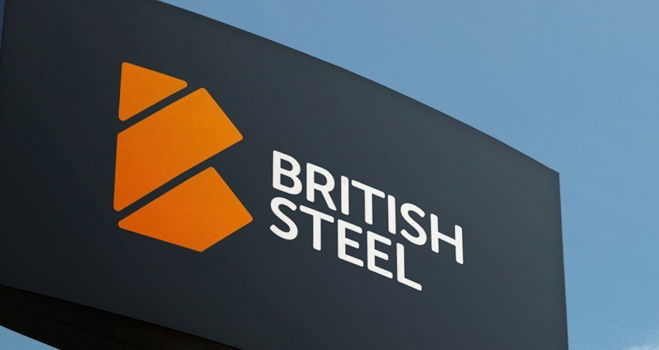British Steel to consult on ending steelmaking in Scunthorpe

24 March 2025
British Steel has announced that it will consult on a proposed closure of the Scunthorpe blast furnaces, rod mill and steelmaking operation following the owners’ rejection of a £500 million Government funding bid. This marks the end of steelmaking in Scunthorpe after 160 years of production.
The closure of steel production in Scunthorpe would mean that the UK loses vital steelmaking capabilities in rail, heavy sections, and light sections, critical to transport, infrastructure, and construction - leaving customers dependent on international supplies.
In its announcement, the company has proposed three options:
- Closure of the blast furnaces, steelmaking operations and Scunthorpe Rod Mill by early June 2025
- Closure of the blast furnaces and steelmaking operations in September 2025
- Closure of the blast furnaces and steelmaking operations at a future point beyond September 2025
UK Steel Director General, Gareth Stace, said:
“The proposal to close iron and steel making at Scunthorpe marks a heartbreaking and pivotal moment for our sector. It is a shocking blow to the 3,400 workers, our sector and to the whole community in Scunthorpe. This gut punch to UK steelmaking will have a profound impact, felt throughout the British economy.
“All options should be on the table, and we need a secure future for our steel industry. The end of steelmaking at British Steel would mean we have a major gap in capacity to meet the future demand of the nation and will be an irreparable break in the armour of national security.
“This devastating decision will cause untold disruption and damage to our supply chains, threatening jobs, businesses and the nation’s economic strengths. The steel industry is officially in a crisis. UK Steel has been sounding the alarm. Government must get back to the negotiating table to urgently stop the lifeblood draining from our sector and take action to rebuild the steel industry.”
ENDS
Notes to Editors
National security:
Supply –
- British Steel produces wire rod, sections, special profiles, rail, and semi-finished products, which are used in construction, yellow goods, automotive, engineering, earth moving, and mining. British Steel supplies up to 95% of British network rails, leaving the UK dependent on imports. British Steel supplies other steelmakers in the UK with semi-finished products for further processing, such as slab for making steel plate and wire rod for making steel wire.
- The Royal United Security Institute’s (RUSI) paper, At the Crux: UK Steel Risk in the Energy Transition, 2023, noted that: “Although the UK is a major outlier in terms of the small size of its steel production, it has until now managed to maintain a notable presence in most product segments, which is important for the ongoing functioning and resilience of the economy. Further loss of capacity would leave segments of the economy entirely reliant on imports, in some cases from single international suppliers.”
- The report goes on to note that: “Loss of capacity at a large scale might take decades to recover, if it is recoverable at all, because of the loss of supporting infrastructure and expertise.” And that “The closure of the Scunthorpe site would result in open-section customers – which make up the largest demand segment of the 1.2-million-tonne-per-year structural steel market in construction – relying almost exclusively on one supplier that is based abroad. Relying solely on imports would therefore risk monopoly pricing and supply delays, as well as greater potential for longer delays during periods of broader steel supply disruption, such as recently with the Covid-19 pandemic.”
Defence –
- The Defence Select Committee report ‘Ready for War?’, February 2024, identified a pressing need to strengthen domestic production capacity across the board.
- UK Steel’s Defence Procurement Position Paper, May 2024, noted that: despite its criticality as the building block material for many of our military assets, the MOD does not currently treat steel as a ‘strategic asset’ requiring support and protection in procurement decisions, despite the security implications of offshoring steel supplies, as identified by RUSI.
The UK steel sector:
- Produces 5.6Mt of crude steel a year, equivalent to 70% of the UK’s annual requirement (annual demand of 7.6Mt in 2023, of which 40% was met by domestically produced steel)
- Employs 33,700 people directly in the UK and supports a further 42,000 in supply chains
- The median steel sector salary is £37,315, 26% higher than the UK national median and 35% higher than the regional median in Wales, Yorkshire, and Humberside, where its jobs are concentrated
- Directly contributes £1.8 billion to UK GVA and supports a further £2.4 billion
- Directly contributes £3.4 billion to the UK’s balance of trade 96% of steel used in construction and infrastructure in the UK is recovered and recycled to be used again and again.
For further information about the steel industry, please see the UK Steel Seven Opportunities for Steel report, 2024 press pack, Why the UK needs a strong steel sector or the 2024 UK Steel Key Statistics report